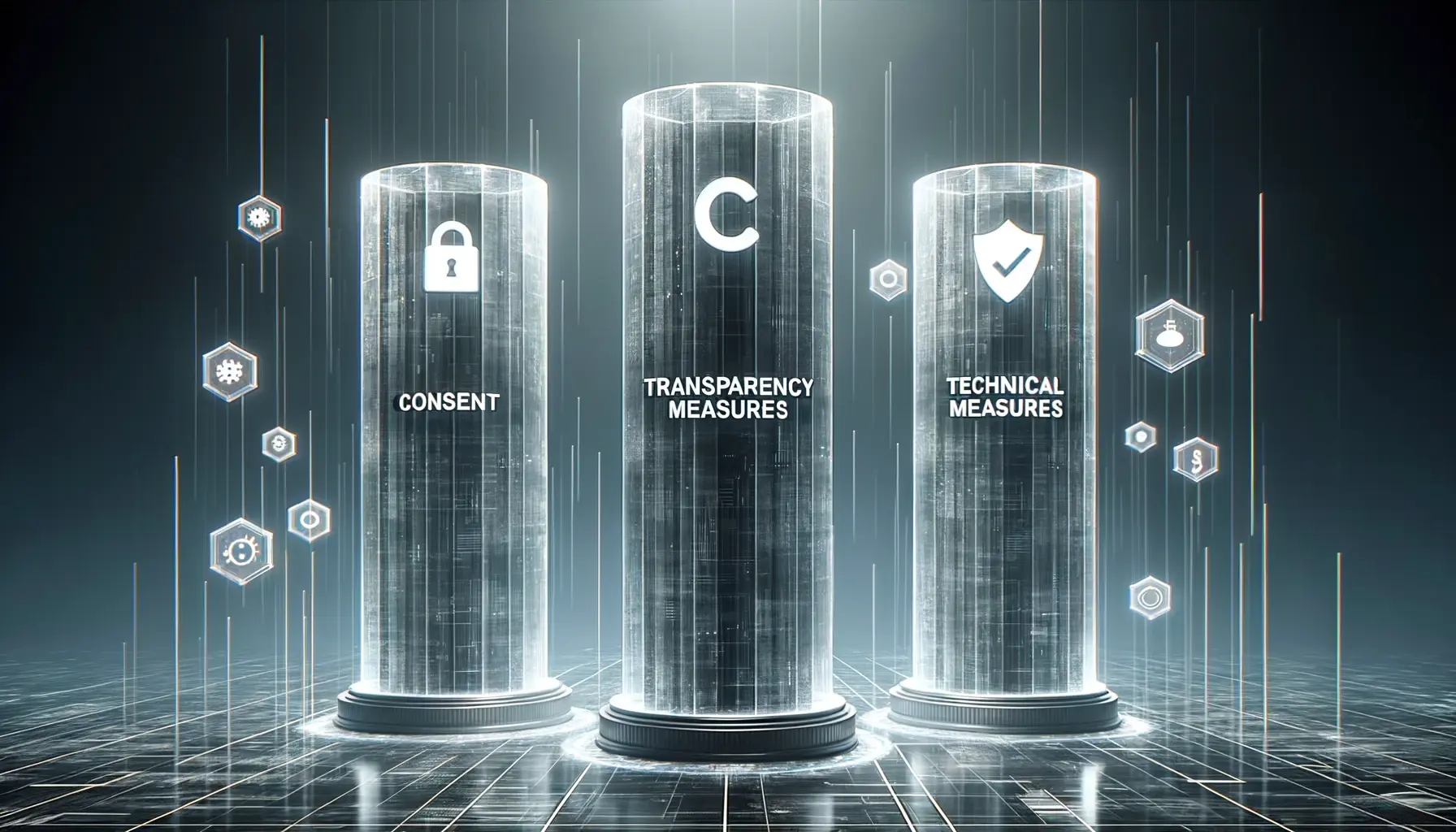Quebec’s Digital Revolution: Understanding Law 25 and Cookie Compliance
In the rapidly evolving digital world, where does Quebec stand? With Law 25, the answer is clear: right at the forefront of digital privacy. This isn’t just another piece of legislation. It’s a statement, an assertion of user rights in a world that’s becoming increasingly online. Let’s take a closer look at this game-changer and understand what it means for businesses and everyday users in Quebec.
The Birth of Law 25:
Every great change has a story. For Quebec, it was recognizing the rising tide of digital interactions and the parallel need for privacy protection. While the rest of Canada was primarily under the watchful eyes of PIPEDA, Quebec decided to carve its own path. Law 25 wasn’t just a response; it was a proactive move, a forward-thinking approach to digital privacy. Why follow when you can lead? Quebec’s individuality shines brightly here, underlining the province’s commitment to protecting its residents in this digital age.
Core Tenets of Law 25:

Law 25, with its revolutionary approach to digital privacy, is underpinned by several key principles. Let’s unravel them:
- Consent Dynamics: The cornerstone of Law 25 is its rigorous emphasis on consent. Businesses are compelled to:
- Seek explicit user permission before collecting personal data. No more implied consents or ambiguous terminologies. Every interaction must be crystal clear.
- Understand the distinction between marketing and non-marketing cookies. While marketing and advertising cookies require express consent, there’s some leeway for functional cookies that enhance user experience.
- Design user interfaces that allow easy consent provision or withdrawal. It’s a two-way street – collecting data is as important as letting users retract their consent.
- Transparency & Clarity: With Law 25, Quebec aims to eradicate any shadows of doubt or confusion in the realm of data collection.
- Privacy policies must be straightforward, shedding the legalese and instead communicating in plain language that every user can understand.
- Every act of data collection, usage, or sharing must be transparently communicated. No hidden clauses, no obfuscations.
- The purpose of data collection and sharing should be distinctly mentioned. Users deserve to know why their data is being collected and who gets to see it.
- Technical Measures: Beyond policies and promises, Law 25 mandates tangible actions.
- Implementation of tools like consent management platforms isn’t just recommended – it’s essential. These tools ensure that user consents are properly recorded, managed, and can be easily withdrawn if needed.
- Businesses are expected to take proactive measures, like blocking third-party cookies until a user gives explicit consent.
- In preparation for potential audits, keeping comprehensive logs of consent is a must. This isn’t just about compliance; it’s about demonstrating genuine respect for user choices.
The Cookie Challenge:

Cookies. Those tiny digital breadcrumbs that track our every move online. But in the wake of Law 25, these little trackers are now under the spotlight in Quebec, and it’s crucial to understand their dynamics.
-
- What’s in a Cookie? At their core, cookies are simple text files stored on a user’s device. They remember preferences, logins, and even shopping cart items. But their more sophisticated cousins – tracking cookies – monitor user behavior across sites, crafting personalized advertising experiences.
- Law 25’s Take on Cookies:
-
-
- Essential vs. Non-Essential: Not all cookies are born equal. While essential cookies (those necessary for a site’s functionality) might get a pass, non-essential ones, especially those for advertising, are under strict scrutiny.
- Consent Banners: You’ve seen them – those banners that pop up when you visit a website. Under Law 25, they’re not just polite suggestions. They’re crucial instruments of informed consent. Their design, clarity, and prominence are all subject to guidelines.
- Third-Party Cookies: Often sourced from external domains (like advertisers), these cookies have been a major point of contention. With Law 25, they can no longer operate covertly. Until users give a nod, they remain blocked.
-
- The Path Ahead for Businesses:
-
- Active Audits: Businesses are encouraged to regularly audit and categorize their cookies, ensuring they’re compliant and transparent about their purposes.
- Engaging with Vendors: For third-party cookies, communication with vendors becomes vital. They need to be on the same page, aligning their practices with Law 25’s requirements.
Practical Steps for Compliance:
In the wake of Law 25, Quebec businesses can’t just aspire to be compliant – they must act on it. Here are the tangible steps that businesses should consider to ensure they’re not only adhering to the letter of the law but also to its spirit:
- Revamping Consent Banners: It’s time to give those pop-ups a makeover.
- Design should be user-friendly. Banners shouldn’t just be there – they should engage users meaningfully.
- Clearly list the types of cookies in use: analytics, advertising, essential, etc.
- Provide an easy option for users to accept, decline, or modify their consent.
- Consent Management Platforms (CMPs): Investing in a robust CMP is no longer optional.
- These platforms help in collecting, storing, and managing user consents effectively.
- They ensure a real-time response – if a user revokes their consent, the change is instantaneous.
- For businesses looking to scale, CMPs are invaluable, automating what could otherwise be a complex manual process.
- Education & Training: Compliance isn’t a one-person job; it’s an organizational commitment.
- Regular training sessions ensure that everyone, from the tech team to customer service, understands Law 25 and its implications.
- Establishing an in-house team or hiring consultants specialized in digital privacy can guide the company’s strategies in line with the latest regulations.
- Regular Audits & Updates: The digital landscape is always evolving. Regular check-ins are a must.
- Periodic audits will identify any outdated practices or non-compliant tools in use.
- By keeping an eye on industry standards and shifts, businesses can stay ahead of the curve and adapt proactively.
Embracing Law 25 isn’t just about avoiding penalties; it’s about fostering trust. In an age where user loyalty can be the difference between a business thriving or just surviving, taking these practical steps isn’t just smart – it’s essential.
Impact on Businesses & Users:
Law 25 is more than just a set of guidelines – it’s a seismic shift in how businesses and users interact in the digital realm of Quebec. Let’s explore the ramifications:
For Businesses:
- Enhanced Reputation: In an age where data breaches and privacy scandals make headlines, adhering to Law 25 can become a badge of honor. It’s a testament to a business’s commitment to its users, which can foster trust and loyalty.
- Penalties & Consequences: Non-compliance isn’t just about a tarnished image. There are tangible penalties, financial and otherwise. Businesses must be aware that failure to respect user rights can lead to significant repercussions.
- Operational Changes: From re-designing websites to investing in new tech infrastructure, the operational impact is undeniable. It’s a learning curve, but one that’s essential for long-term success.
For Users:
- Empowered Choices: Users in Quebec now have a powerful tool at their disposal. With the ability to grant or revoke consent, they’re no longer passive consumers but active participants in the digital space.
- Enhanced Privacy: No more being watched without knowing. Law 25 ensures that users are aware of who’s tracking them and why. It’s a step towards a more transparent, user-centric internet.
- Data Breach Protocols: Should the worst happen, and a business suffers a data breach, Law 25 mandates swift action. Users will be notified, ensuring they can take appropriate steps to protect themselves.
At its core, Law 25 seeks to recalibrate the balance of power in the digital domain. It’s a move away from a Wild West approach to a more structured, respectful interaction between businesses and their users. Both parties stand to gain, and as the dust settles, Quebec’s digital future looks brighter and more promising.
Influences and Future Trends:
In the ever-evolving tapestry of digital privacy, Quebec’s Law 25 doesn’t exist in isolation. It’s part of a larger global movement, and understanding this context provides insights into where we’re headed next.
- Global Privacy Echoes:
-
-
- The European Influence: The European Union’s General Data Protection Regulation (GDPR) was a game-changer in the realm of digital privacy. With its stringent guidelines and hefty penalties, it set a new global standard. Quebec’s Law 25, in many ways, mirrors this commitment, suggesting a broader shift in global perspectives on privacy.
- Trends Beyond Borders: From California’s Consumer Privacy Act (CCPA) to Brazil’s General Personal Data Protection Law (LGPD), regions worldwide are awakening to the importance of digital privacy. Quebec is part of this vanguard, leading the way in Canada and beyond.
-
- The Road Ahead for Quebec:
-
- Continuous Evolution: While Law 25 has set a strong foundation, digital privacy isn’t static. As technologies advance and new challenges arise, amendments and updates to the law are not just likely, they’re inevitable.
- Industry Self-Regulation: Beyond government regulations, there’s a move towards industry self-regulation. Bodies like the Interactive Advertising Bureau Canada are crafting their frameworks, indicating a collaborative future where both industries and governments work hand-in-hand.
- User Empowerment: The future promises not just stricter regulations but also more informed users. As digital literacy grows, users will demand more rights, clearer transparency, and better control over their data.
Unique Exceptions & Considerations:
Law 25, as comprehensive as it is, also presents certain nuances and exceptions that underscore its adaptive and considerate approach to the diverse digital landscape of Quebec.
- Non-Profit & Charitable Organizations:
-
-
- While the primary focus of Law 25 is commercial entities, it’s essential to note the exceptions carved out for non-profits and charities. Understanding that their operations differ, these organizations face different standards, highlighting the law’s flexibility.
-
- Children’s Digital Privacy:
-
-
- Children, with their inherent vulnerability in the online world, receive special attention under Law 25.
- Businesses are urged to exercise utmost caution, avoiding tracking on children-centric platforms or websites.
- Consent is paramount. If an organization does need to collect data from children for legitimate reasons, the bar for “meaningful consent” is set much higher, ensuring their protection.
-
- The Third-party Conundrum:
-
-
- Law 25 is clear on direct data collection, but what about third parties? Here, businesses need to be vigilant. Engaging with vendors and third-party entities requires ensuring their compliance with Law 25, maintaining the chain of trust throughout.
-
- Operational Challenges & Adaptations:
-
- While Law 25 sets the rules, businesses may face operational hurdles in real-time implementation. These challenges, from tech limitations to training requirements, are part and parcel of the transition to a more compliant digital sphere.
Quebec’s Law 25 is not just a statute; it’s a statement, a vision for a digital realm that respects and prioritizes its users. As we stand at this pivotal juncture, it’s clear that the wave of change initiated by this legislation will reverberate across industries, setting a precedent for others to follow.
For businesses, the message is clear: transparency, respect, and adherence to Law 25 are not just legal necessities but the cornerstones of building lasting relationships with users. In an age where trust can be a fragile entity, embracing these principles can be the key differentiator.
For users, the power now lies in your hands. With Law 25, you have the tools, the rights, and the platforms to make informed decisions, to choose who gets access to your digital persona, and on what terms.
Businesses: Don’t just adapt to Law 25; embrace it. Let it guide your digital strategies, shape your interactions, and build a foundation of trust that will serve you in the years to come.
Users: Stay informed, understand your rights, and never hesitate to demand the respect and privacy you deserve in the digital world.
Quebec’s digital revolution has just begun, and together, we can shape a future that’s fair, respectful, and thriving for all.


